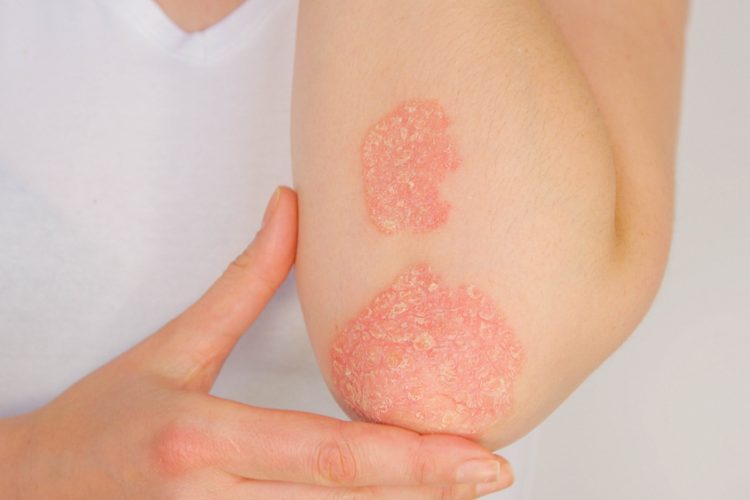Targeting interferon kappa could control psoriasis inflammation
Posted: 16 August 2021 | Anna Begley (Drug Target Review) | No comments yet
Scientists found that changing interferon kappa levels altered the severity of psoriasis inflammation and cytokine production in mice.


A team at the University of Michigan, US, have revealed that targeting interferon kappa, a protein made by skin cells, may reduce the severity of psoriasis. The researchers hope that the findings will help develop therapies that modulate interferon to limit inflammation in psoriasis patients.
“We have known that psoriatic inflammation is marked by interferon-related gene expression, but how interferons alter the severity of the disease has not been clear,” said senior author Joanne Kahlenberg. “Understanding how interferon kappa may modulate psoriasis brings us one step closer to optimising our treatments.”
The research team induced psoriasis in mouse models, splitting them into groups with interferon kappa at low, normal or elevated levels. The overexpressed protein alone did not induce the disease, but it primed the skin for the inflammatory response that followed.
Changing the levels of interferon kappa altered the severity of inflammation and production of cytokines. Investigators found more psoriasis-like inflammation when more interferon kappa was present, while decreasing interferon kappa levels reduced disease.
Several treatments are used against psoriasis, but there is no cure. Currently, a few drugs inhibit interferons, but many that are more specific are still in the trial phase. Coupled with the study’s findings, personalised medicine will be crucial as physicians attempt to treat this disease, Kahlenberg said.
“Until now, treatments have been tested by studying a drug in hundreds of patients, lumping the average of them all together and targeting the average of those patients,” added Kahlenberg. “As any patient who has been on these medications will tell you, this trial-and-error approach wastes patient time and money trying to get control of the disease. Understanding a patient’s background level of interferon might help us target things within that person to make their disease better faster and stay in remission.”
The study was published in the Journal of Investigative Dermatology.
Related topics
Drug Targets, In Vivo, Molecular Biology, Molecular Targets, Protein, Protein Expression, Therapeutics
Related conditions
Psoriasis
Related organisations
University of California (UC) San Diego
Related people
Joanne Kahlenberg








